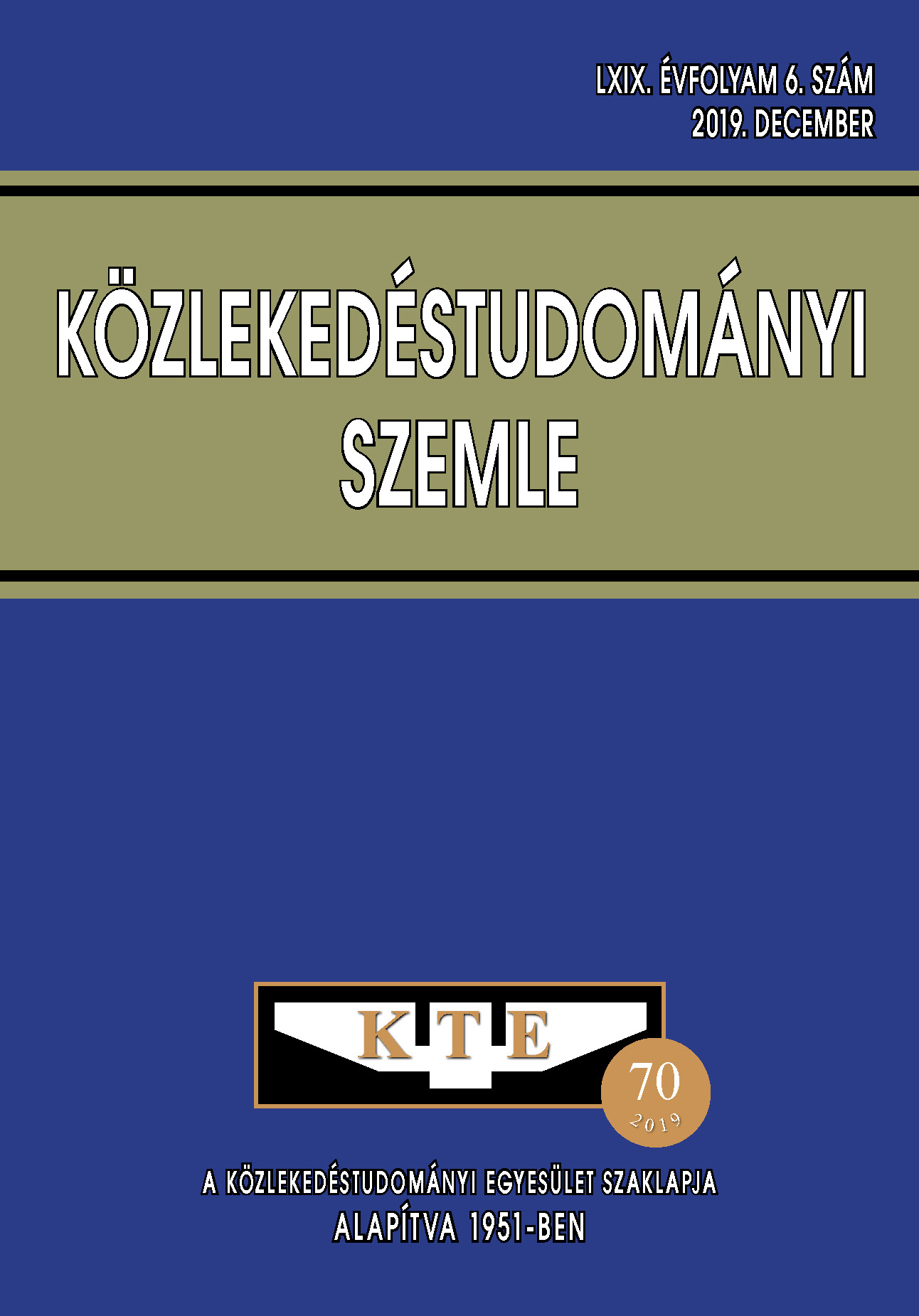Társadalmi egyeztetés a közlekedésfejlesztés szolgálatában – a Consul keretrendszer adaptációjának tanulságai
Absztrakt
A közösségi beruházások megvalósítási folyamatában egyre nagyobb hangsúlyt kap a társadalmi észrevételek figyelembevétele. Jelen tanulmány a BKK Zrt. SMART-MR kutatás-fejlesztési projektjének keretében kialakított keretrendszer segítségével tíz közlekedésfejlesztési projekt társadalmi egyeztetésének folyamatát és eredményeit mutatja be, amelyek jelentős mértékben hozzájárulhatnak a jövőbeli társadalmi értékelési folyamatok eredményességéhez.
Hivatkozások
NHS England, 2016. Developing a method to assist investment decisions in specialised commissioning: next steps, Consultation guide. April 2016, London. p. 22.
National Infrastructure Commission, 2016. The national infrastructure assessment process and methodology, Consultation response. October 2016, London. p. 38.
Crane, J., 2018. Why the history of public consultation matters for contemporary health policy. Endeavour, 42/1, pp. 9-16. DOI: http://doi.org/gdhdgh
European Commission, 2013. A concept for sustainable urban mobility plans. COM (2013) 913 final, Annex 1. 17.12.2013, Brussels. p. 5.
Wefering, F. et. al., 2014. Guidelines. Developing and Implementing a Sustainable Urban Mobility Plan. January 2014. p. 151.
Esztergár-Kiss, D. – Tettamanti, T., 2019. Stakeholder engagement in mobility planning. Autonomous. Vehicles and Future Mobility 2019, pp. 113-123. DOI: http://doi.org/ddpk
TRENECON, 2017. Módszertani útmutató a Fenntartható Városi Mobilitási Terv (SUMP) készítéséhez. Nemzeti Fejlesztési Minisztérium, Budapest. p. 51.
Trans-Sport Consulting, 2019. Az IKOP javítását célzó SMART-MR akcióterv összeállítása, Helyzetfeltárás, értékelés és javaslatok. BKK Zrt., Budapest. p. 95.
https://bkk.hu/2019/01/smart-mr-consuleszkozt-tesztel-bkk/
/2016. (V. 18.) Korm. határozat az Integrált Közlekedésfejlesztési Operatív Program éves fejlesztési keretének megállapításáról
Az elektronikusan megjelenő cikkek nyílt hozzáféréssel rendelkeznek (OJS), online ingyenesen elérhetők és letölthetők. A cikkek szerzőit nem terheli megjelentetési vagy kiadási költség (APC). Felhasználóknak joguk van a cikkek olvasására, letöltésére, másolására, kinyomtatására, valamint azokban való keresésre, vagy a teljes szöveg linkkel történő megosztására.
A szerzőknek nyilatkozniuk kell arról, hogy beadványukat korábban nem tették közzé más folyóiratban, a pénzügyi támogatás feltüntetésre került és a hivatkozások listája teljes és pontos, beleértve az URL-ek és a DOI-k specifikációját is (ha rendelkezésre állnak). A cikktervezet beadásakor minden szerző jóváhagyja a benyújtott változatot. A szerzők garantálják, hogy a cikk az ő eredeti művük. A szerzők kötelesek részt venni a szakértői értékelés folyamatában, követni a bírálók tanácsait, betartani az előírt határidőket, és amennyiben előfordulnak, kötelesek visszavonni a benyújtást vagy kijavítani a hibákat.
Minden beadott cikket szakértői értékelés alá kerül, ahol a szerkesztők független értékelést kérnek legalább egy szakértőtől, ügyelve arra, hogy a bíráló(k)nak ne legyen összeférhetetlensége a szerzőkkel. A végső döntést a főszerkesztő hozza meg, aki figyelembe veszi az értékeléseket és a szerkesztők javaslatait. A szerkesztők és a lektorok bizalmasan kezelik a beadványt.
A kiadó és a szerkesztők elkötelezettek a magas etikai normák betartása mellett, és megakadályozzák azokat a publikációkat, amelyekben kutatási visszaélés történt. Az ilyen etikai kérdésekben a COPE irányelveit követik.
A szerzők fenntartják a szerzői jogokat, és megadják a folyóiratnak az első közzétételi jogot a Creative Commons Licenc alapján (https://creativecommons.org/licenses/by-nc-nd/4.0), amely lehetővé teszi mások számára, hogy megosszák a művet, elismerve a mű szerzőségét és a folyóiratban való első közzétételt.
A folyóirat archiválja az összes megjelent cikket, és a folyóirat tulajdonosa, a Közlekedéstudományi Egyesület továbbra is üzemelteti az adatbázist abban az esetben is, ha a folyóirat kiadása megszűnik.















